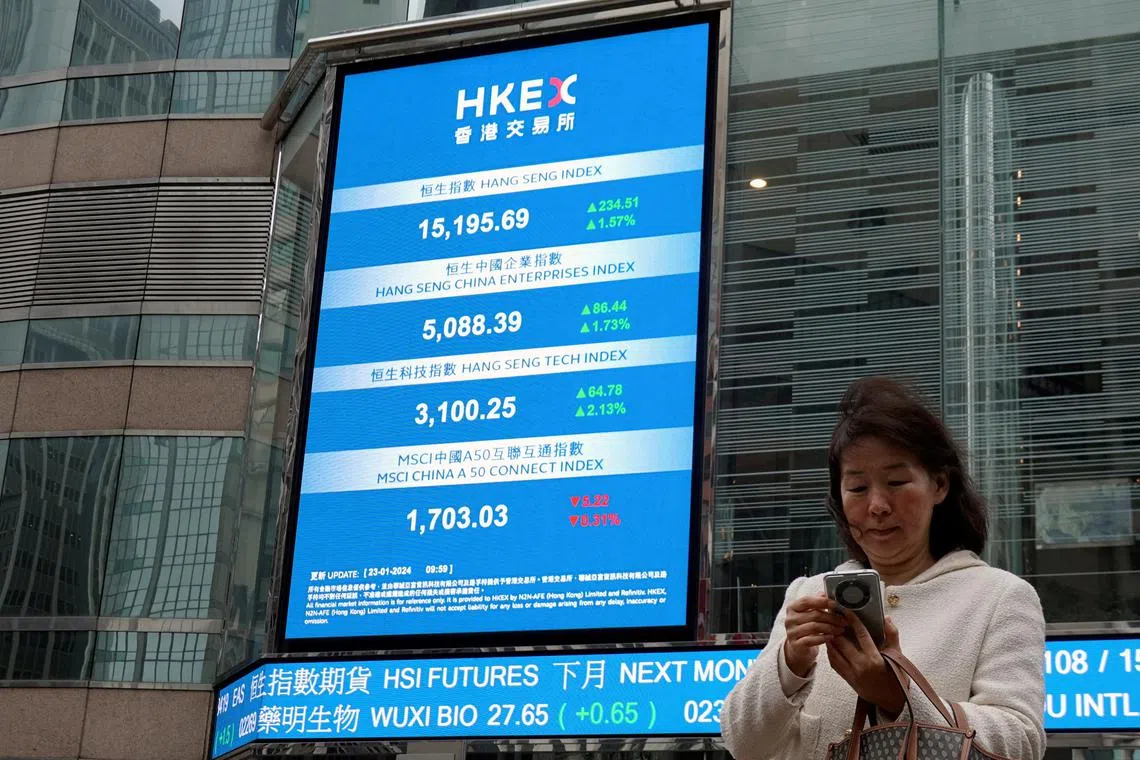China property shares plunge after removal from Stock Connect
Sign up now: Get ST's newsletters delivered to your inbox

Shimao Group Holdings’ stock shed as much as 30 per cent on Sept 10, the most in more than a year.
PHOTO: REUTERS
BEIJING - Shares of some Chinese developers dropped in Hong Kong after they were made inaccessible to investors in the mainland, marking another setback for the beleaguered sector.
Shimao Group Holdings’ stock shed as much as 30 per cent before closing down 22.5 per cent on Sept 10, the most in more than a year, after it was scrapped from the Stock Connect programme that links the Shanghai and Shenzhen bourses to the Hong Kong exchange. Cifi Holdings Group lost 14.6 per cent while Sino-Ocean Group Holding tumbled 15.9 per cent.
The Stock Connect programme is open to institutional investors and individuals with at least 500,000 yuan (S$91,700) of assets in brokerage accounts.
The removals are the latest blow to China’s real estate stocks amid an ongoing property downturn. The country’s residential housing slump deepened in August despite government efforts to support the market, while shrinking sales from developers such as Country Garden Holdings have also weighed on sentiment.
Real estate firms’ “struggles with debt restructuring and structural challenges for the sector hampering a sales turnaround suggest the risks that the removal from the Stock Connect could be once and for all,” said Bloomberg Intelligence analyst Kristy Hung.
Meanwhile, Alibaba Group Holding shares rose as much as 5.2 per cent in Hong Kong before closing up 4.2 per cent after it was added to the Stock Connect programme. Chinese investors also purchased HK$4.2 billion (S$703 million) worth of Hong Kong stocks less than an hour into trading.
Alibaba is expected to attract about US$20 billion worth of inflows into next year and mainland investors will likely build a stake of more than 10 per cent, according to Bloomberg Intelligence.
The stock has underperformed the market in recent years, owing to weak consumption and Beijing’s crackdown on the tech industry, with its Hong Kong-listed shares down more than 70 per cent from its 2020 peak.
Alibaba in August reported a 29 per cent drop in quarterly profits, citing sluggish Chinese consumer activity. BLOOMBERG, AFP


